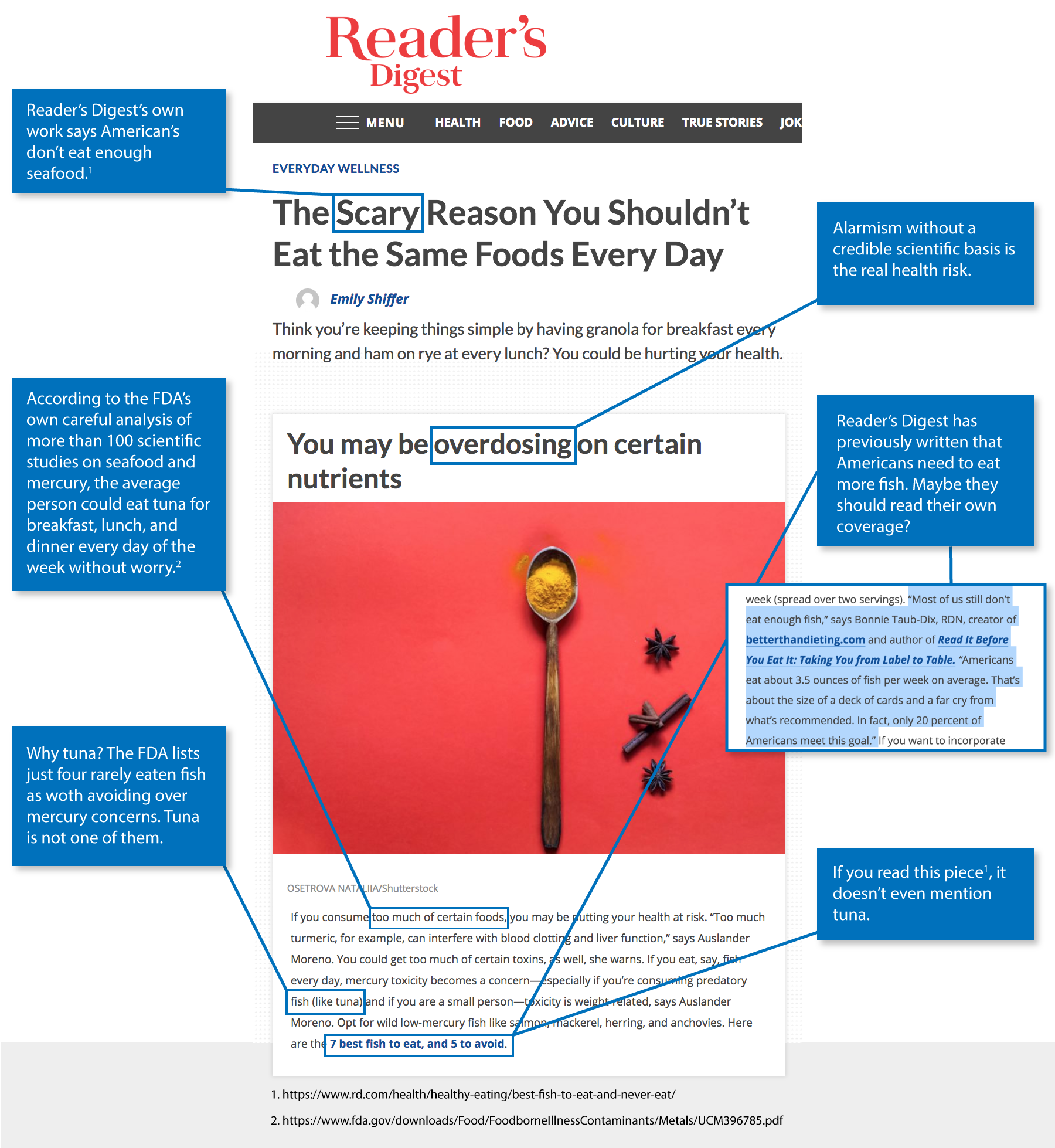Reader’s Digest Gets It Wrong on Tuna
In a world saturated with conflicting and confusing dietary advice there is remarkable expert consensus on one subject: Americans need to eat more seafood. Period.
So when click-bait articles pegged to the latest food fad or fringe diet peddle in dusty and debunked clichés about fish and mercury, the result is not just that readers are misled. Their health is actively endangered.
Reader’s Digest’s recent post [The Scary Reason You Shouldn’t Eat the Same Foods Every Day, by Emily Shiffer, 1/23/19] poses just such a threat. Ms. Shiffer tells readers it’s “scary” to eat too much of the same foods, and singles out tuna as specifically dangerous due to concerns over mercury. But there is no reason to limit tuna consumption due to mercuy, and indeed the only piece she cites in support, written by one of her own colleagues, doesn’t even mention tuna.
The truth is that there has never been a case of mercury poisoning from normal consumption of commercial seafood recorded in any American medical journal. That’s right, zero cases.
Indeed, the FDA’s own analysis of more than 100 scientific studies on seafood concludes that the average person could eat canned tuna for breakfast, lunch, and dinner every day of the week without worry.
But many Americans aren’t getting that message because of click-bait articles like Ms. Shiffers. The FDA warns that most Americans are eating dangerously low amounts of seafood, a deficiency that contributes to nearly 84,000 preventable deaths each year. Another long-term study showed that children whose mothers had reduced their seafood intake during pregnancy had appreciably lower IQs.
Other agencies agree that more seafood consumption is needed. The Dietary Guidelines for Americans, for example, urge consumers to eat more fish and recommend tuna as a healthy option. The USDA too recommends that Americans eat at least 2-3 servings of seafood per week. That’s because seafood is rich in important nutrients, such as a vitamins B12 and D, iron, zinc, magnesium, phosphorous, selenium and beneficial omega-3s called EPA & DHA.
In the face of such overwhelming scientific evidence, unsupported and unsourced attacks on tuna are especially galling. Reader’s Digest owes its readers more, and we call on them to update their story with the real facts about tuna.

